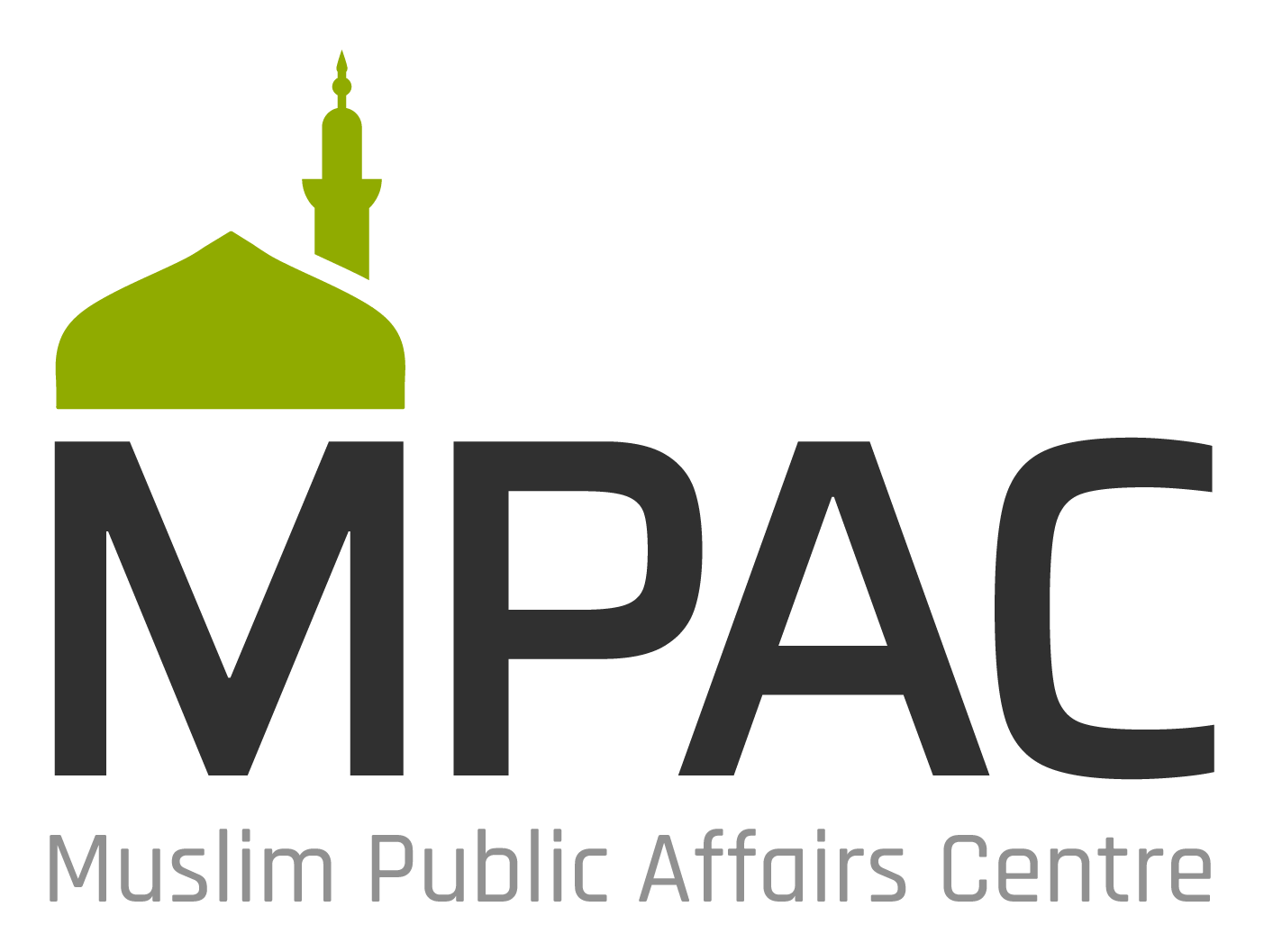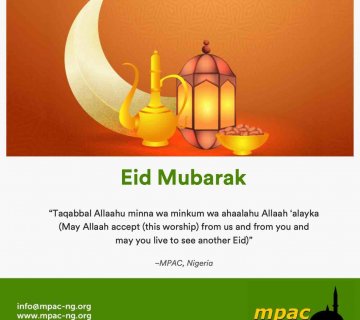Why Do Muslims Fast During Ramadan?
“…whoever witnesses the Month of Ramadan should fast throughout it…” Qur’an (2:185)
Thursday, 9 May 2019.

As Muslims prepare for the age-old annual compulsory one-month fast, this article looks closely at some of the reasons why Muslims do Ramadan fast. It also traces the history of fasting in Islam.
History of Ramadan Fast
What turns out now to be a compulsory annual event (i.e. fasting during the month of Ramadan by all able-bodied Muslims) started in the early years of Prophet Muhammad (SAW) in Medina, precisely in the second year of Hijra. Prior to his flight to Medina (known as Hijra), the Prophet(s.a.w) was in the habit of fasting three times per month (this gives 36 days in a year) when he was in Mecca and to a great extent when he settled in Medina. Not long, the Prophet (SAW) soon discovered that the Jews in Medina used to set aside one special day for fasting. By Islamic lunar calendar, the day used to be 10th of Muharram, often called yawmu ‘ashura. The Prophet (SAW) then asked the Jews about the significance of the day. He was told that it is the day Allah helped Prophet Musa (AS) to humiliate, defeat and drown the tyrant, Fir’aon. By all standard, since Musa (AS) was a prophet of Allah and of course a Muslim, the Prophet(s.a.w) felt that Musa (AS) was nearer to him as a Prophet (as well as to the Muslims) than to the Jews. To this end, he ordered his companions to fast along with him that day.
Narrated Ibn ‘Abbas (RA): When Allah’s Apostle (SAW) arrived at Medina, he found
the Jews fasting on the day of ‘Ashura. The Prophet (SAW) asked (about it) and they
replied: “This is the day when Moses(a.s) became victorious over Fir’aon”. The
Prophet(s.a.w) said (to the Muslims), “We are nearer to Moses than they, so fast on
this day” (Sahih Al-Bukhari, vol.6, p.233)
The Prophet(s.a.w) also sent a companion to go round Medina to announce to all the Muslims that whoever has eaten should fast for the remaining hours of the day and whoever has not eaten should fast for the day (see Sahih Al-Bukhari, vol. 3, hadeeth 181, p. 103). It is evident that ‘Ashura fast was the first communal fast made obligatory for the Muslims by the Prophet (SAW) whereas his own habit of 3-day-fast-per-month remained optional.
The All-knowing Allah formally revealed two verses regarding fasting in the second year of Hijra: the verses spelt out the reasons for fasting; when to do so; who should be exempted? etc. Let’s see the verses:
“O ye who believe, fasting is prescribed for you as it was prescribed for people before you so
that you will (learn how to attain) piety” (Q2:183)
&
“(fasting is) for a fixed number of days: but if any one of you is sick, or on a journey, the
prescribed number (should be made up) from (other) days later. For those who can do it
(with hardship) is a ransom, the feeding of one that is indigent. But whoever can give
more (than this) of his own free will–(then) it is better for him, and it is better for you that
ye fast, if ye but knew.” Q(2:184)
When these two verses were revealed, ‘Aisha (RA) reported that the Prophet (SAW) then said to the Muslims: “Ramadan fast is a divine obligation but whoever likes to fast ‘Ashura day (as well) may do so voluntarily or leave it”. Undoubtedly, Ramadan fast is a blessing to the Muslims in the sense that from one-day ‘Ashura fast, Allah gave them a whole month of Ramadan instead. Ramadan may be 29 or 30 days depending on when the moon was sighted.
A cursory look at the qur’anic verses above reveals that the All-wise intend ease for the Muslims and not difficulty: for instance, ransom was allowed for those who choose not to fast due to hardship or difficulty. This freedom or leniency was short-lived when the All-wise and the All-knowing Allah tightened His injunction with another revelation that nullified giving ransom, by able-bodied Muslims, in exchange for missed Ramadan fast thus:
“Ramadan is the (month) in which Qur’an was sent down, as a guide to mankind,
and a clear guidance and judgment (so that mankind will distinguish right from
wrong). Whoever among you witnesses the month of Ramadan should fast through
it. But whoever is sick or on a journey, the prescribed period (missed should be made
up) by days later. Allah wants ease for you and He does not want to put you into
difficulties. (He wants you) to complete the prescribed period and to glorify Him in
that He has guided you; and perchance ye shall be grateful” Q(2:185).
This verse shows that Allah wants every able-bodied Muslim to “complete the prescribed period” (30 or 29 days depending on when the moon was sighted). It in fact re-emphasizes the importance of Ramadan fast which Allah made clear in the last part of Q(2:184) where He said: “…it is better for you that ye fast if ye but knew”. Unambiguously, feeding of the poor person as a ransom for not fasting (by those who can fast) is not allowed by Q(2:185). This is the genesis of Ramadan fast in Islam.
Remarkably, it is clear that ‘Ashura fast was replaced by Ramadan fast, but the habit of fasting 3-day-per-month which the Prophet(s.a.w) used to do was a blessing in some way because his 36 days a year fasting can be interpreted thus: Allah approved 30 days as FARD (i.e. obligatory) for the month of Ramadan, and the Prophet(s.a.w) recommended six days fasting in the month of Shawwal for all Muslims (though this is voluntary). If these two fasting are adopted, one would have done 36 days (which is the same as fasting round the year).
Why Do Muslims Fast?
This is a common but interesting question which a child may ask his/her parents. Non-Muslim may also pose it to a Muslim. Here are some possible reasons why Muslims observe a marathon one-month fast during Ramadan.
(a) To Obey Allah’s Injunction
Fundamental to a Muslim’s faith (or belief) are six articles: (i) belief in Allah, (ii) belief in Angels, (iii) belief in divine Books of Allah, (iv) belief in all Prophets, (v) belief in the Day of Judgment, and (vi) belief in Predestination. Articles (i) and (iii) demand that a Muslim must believe in, obey and implement, all the words of Allah contained in the Holy Qur’an. This is because “…His (Allah) word is the truth…” Q(6:73) and “the truth is from your Lord, so be not at all in doubt” Q(2:147) and “…whose word can be truer than Allah?” (Qur’an). Thematically, Qur’an contains injunctions for mankind, allegories, stories of past events, accounts of future events, and a lot of lessons, especially for Muslims. Of importance the injunctions are sometimes directed to all creatures (men and jinns), or sometime to specific gender (men or women), or sometime to specific tribes (e.g. “Bani Israel”), or sometime to the progeny of Adam (i.e. mankind), or sometime to Ahl-ul kitaab (the people of the book), or sometime to Muslims (i.e. those who believe in One Allah) etc. In most cases, the injunctions of Allah to Muslims can be regarded as blessing and mercy and when fully obeyed often lead them to His straight path. Without mincing words, there is no compromise with Allah’s injunctions: every sincere and God-fearing Muslim must obey them; this is a necessary precondition for being a Muslim. One of His injunctions, directed to Muslims (men and women), is:
“O you who believe, fasting is prescribed for you…” Q(2:183)
The phrase “O you who believe” is referring to: (i) those who submit to Allah’s wills and commands, (ii) those who believe in the six articles of faith, (iii) those who testify that “La ilaha illa llaha Muhammadu-r Rasululla“, (iv) those who practice the five pillars of Islam, and (v) those who implement and obey Allah’s injunctions in the Qur’an and follow the sunnah of His Prophet, Muhammad (s.a.w). No followers of any religions satisfy these criteria of “O you who believe” except the Muslims. It is they (Muslims) that Allah is directing His injunction in Q2:183 to. The injunction prescribed fasting as a compulsory duty for them thus:
“…fasting is prescribed for you (Muslims)…” Q(2:183)
and
“…whoever witnesses the month of Ramadan should fast through it…” Q(2:185)
Clearly, Ramadan fast is a divine injunction mandatory on all able-bodied Muslims who are free from compelling excuses. Whoever deliberately forgoes fasting in Ramadan, should know that (s)he has disobeyed Allah’s injunction and no amount of fasting thereafter can give her/him a reward equivalent to one missed Ramadan fast as obvious in this hadeeth:
Abu Huraira (RA) reported that the Prophet (s.a.w) said: “whoever did not fast one day
of Ramadan without a genuine excuse or a disease then even if he fasted for a
complete year, it would not compensate for that (missed Ramadan) day”
(Sahih al-Bukhari, vol. 3, p.88)
(ii) To Practice the Tradition, and Way of the Pious People
Fasting is not new to Islam; it is, indeed, as old as Adam( a.s) who was the first creature and the first Muslim to submit to one Allah. No one knows precisely when fasting began among Adam’s progeny but it is the practice of all the Prophets of Allah and their followers. Qur’an mentions that Musa (a.s) fasted for 40 days (see Q2:51) (this is what the Jews termed “Jewish Passover”) and the Prophet (s.a.w) told us that Dawud (a.s) used to fast for half of the year (this involves fasting on every alternate day). ‘Issa (a.s) (or Jesus) was also reported to have fasted for 40 days (this is what the Christians termed “the Lent”, usually observed before Easter festival). Since these Prophets were Muslims, it can be seen that by asking Muslims to fast, Allah intends to draw their attention to the practice and tradition of those pious predecessors who attained piety (in His sight) through fasting.
“O ye who believe, fasting is prescribed for you as
it was prescribed for people before you …”Q (2:183)
This verse shows that fasting was observed by the people (i.e. “ahl-ul kitaab”) who came to the scene before the Muslims and so it is a “sunnat Allah” (i.e. a tradition approved by Allah) for those who lived aforetime and for the Muslims who are now the best generation ever raised for mankind (Q3:110). Qur’an says:
“(As for) the sunnat Allah (approved) for those who lived aforetime,
no change will you find in (such) sunnat-Allah” Q (33:43)
Therefore, Ramadan fast should be seen as a propagation of the tradition approved by Allah for all those who submit to Him.
(iii) To Learn How to Attain Piety
By the very nature of human beings, they are susceptible to sins and transgression of Allah’s limits. This may be due to their ignorance, worldly struggle for ephemeral and tantalizing things, or shaitan’s handiwork. In particular, Muslims are warned against gossiping, backbiting, slandering, hypocrisy, lying, fibbing, cheating, duping, hatred, nursing grudge, keeping malice, fornicating, eating riba etc. as these vices negate the teachings of the Holy Qur’an. But since Muslims are like any human beings created to err as a result of forgetfulness, they need to be reminded and coached against any social vices from time to time. This will require a fixed training period where Muslims will know and learn how to put an end to vices, learn virtues and get nearer to Allah. That training period is chosen by Allah to be the Ramadan fast which occurs once in every year. During Ramadan: (a) compulsory five daily salaat are observed regularly and timely (this is to remind and train the mindless Muslims that salaat is an all-time duty for them); (b) Zakat-ul fitr is paid on or before the ‘idl Fitr (the festival that commemorates the end of Ramadan fast) (Zakat-ul fitr is to teach Muslims to do sadaqah and to remind them that after zakat-ul fitr they should not forget to pay on time their annual divine obligatory Zakaat, the fourth pillar of Islam); (c) Tarawih and Tahajjud prayers are observed in the evening and night of Ramadan (this is to teach Muslims to observe nawafil (i.e. additional) prayers after Ramadan so as to increase their iman and get their supplications to Allah accepted promptly); (d) Doubtful hobby such as smoking is stopped (this is to train Muslims to be frugal as Allah hates extravagance and to save themselves from diseases such as Tuberculosis, Cancer, and heart attack known to be associated with smoking and premature death); (e) pornographic videos/pictures are avoided and kept away (this is to free Muslims’ hearts and eyes from corruption and from shaitan’s whisperings to do evil deeds); (f) Excessive intake of food is avoided (this regulates the stomach from being pot-bellied and distinguishes Muslims from kaafir whom Qur’an describes as those who eat like cattle (Q47:12)); etc. All these good things which Ramadan fast teaches Muslims are the means to attain piety. This is why the verse on Ramadan fast says:
“O ye who believe, fasting is prescribed for you…so
that you will (learn how to attain) piety” (Q2:183)
(iv) To Reap the Full Reward of the Night of Power (Laelat-ut Qadr)
The last book of Allah to His creatures, Al-Qur’an, was revealed in the night of Ramadan. What this means is that the first divine revelation to Prophet Muhammad (s.a.w) took place in the Night of Ramadan. Allah chose the night because of the special blessings in it. It is called the night of Power (i.e. Laelat-ut Qadr) or the night of blessing (Laelat-ul Mubarak). The deed in this night is better than the rewards of deeds of 1,000 months (about 83.3 years). Let suppose that a man survived up to 100 years and he consciously witnessed 93 nights of Power, he would have in his account many thousands of rewards which exclude all other rewards he earned from doing virtuous deeds. It is this night that all Muslims are invited by Allah to look for in the month of Ramadan. Specifically, the night is in the last ten days of Ramadan and usually in one of the odd days (i.e. 21, 23, 25, 27 and 29th). A Muslim is expected to perform naafilah, recite the Qur’an, do zikr etc in the night. Since no one knows precisely which of the odd days is the night, Muslims are expected to be in seclusion (i.e. i’tikaf) during the last 10 days of Ramadan and the best place to do so is in the mosque. This is necessary, because of the series of pictures and human portrays which are on the wall of some rooms which the angels do not like to see. The Prophet(s.a.w) said: “Angels do not enter houses in which there are pictures” (Sahih Al-Bukhari). It should be mentioned that the Angels descend in succession during the night of Power and they go round with special greeting of “peace” till daybreak when they will move back to their position. The number of these angels is uncountable and they descend with the special command of Allah. The following chapter of the Qur’an details the event of the night of Power thus:
“Indeed We have revealed it (Qur’an) in the night of Power. And what will explain to
you what the night of Power is? The night of Power is better than a thousand months.
Therein descends the Angels and the Spirit by Allah’s permission, on every errand:
(they say) “Peace” (continuously) till the rise of Morning!” Q (97:1-5)
Who will like to miss the Night after reading Q(97:1-5)? It is this very reason that every Muslim wants to witness and reap its full blessing by fasting during the days of the month of Ramadan. As Ramadan fast is inextricably tied to the Night of Power (see Q2:183) it follows that any Muslim who wishes to benefit from the Night of Power must fast during the month of Ramadan. Qur’an says:
“Ramadan is the (month) in which Qur’an was sent down, as a guide to mankind,
and a clear guidance and judgment (so that mankind will distinguish right from
wrong). Whoever among you witnesses the month of Ramadan should fast through
it…” Q (2:183)
(v) To Show to Muslims How to Get Their Past Sins Forgiven
Islam is a religion that stresses equality: both the poor and the rich (men or women) are equal as slaves in the sight of Allah. In Islam the surest way to get Allah’s forgiveness for one’s past sins is Hajj (the fifth pillar of Islam) which unfortunately is easy for the rich to afford the cost of the journey. The All-wise, Allah, did not put the poor Muslims in limbo, rather He made fasting during Ramadan as a means of placing the poor and the rich on equal footing in terms of asking for forgiveness for their past sins. If a Muslim has no means of going for Hajj, there should be a way to compensate him/her. The All-wise has chosen Ramadan for all Muslims to get their past sins forgiven as evident in this hadith:
Narrated Abu Huraira(r.a): The Prophet said:”… whoever fasts during
Ramadan with sincere faith and hoping for his reward from Allah will
have his past sins forgiven” (Sahih Al-Bukhari, vol.3 p.70).
Therefore, Ramadan fast unites Muslims and bring them together as equal slaves who can be forgiven of their past sins devoid of discrimination in the sight of Allah.
(vi) To Show that Fasting is the Epitome of the Five Pillars of Islam
Islam is built upon five pillars. The third pillar is SIYAM (i.e. fasting during Ramadan). The wisdom behind its third position is because it is a fulcrum upon which the other four pillars (Tawheed and salaat are in first and second positions while Zakaat and Hajj are in the fourth and fifth positions) are balanced. It is the only pillar that encompasses all the four other pillars in the sense that: (a) before one observes fast, s(he) must be a Muslim, sane, mature, and free from excuses (such as menstruation, illness, travelling long-distances, childbirth bleeding, etc). And since a Muslim is required to proclaim Shahada (i.e. Tawheed, the first pillar of Islam), fasting is directly tied to shahada. (b) Salaat is the second pillar of Islam that delineates a Muslim from a kafir; this means that a Muslim must observe salaat regularly to become a true Muslim. It follows that fasting during Ramadan without regular salaat is like using a spoon to fill a porous basket with water. (c) Zakaat (the compulsory divine tax) is aimed to redistribute the Muslims’ wealth so that the gap between the rich and the poor is bridged to a certain extent. In Ramadan, every fasting Muslim, who is free from insanity, bondage etc, must pay Zakat-ul fitr on or before the ‘Idl Fitr day. Zakaat-ul Fitr is in some sense a low-profile Zakaat, though aimed to achieve a similar result, is completely different from Zakaat. Hajj is a duty which Muslims owe to Allah and it is to help the pilgrims to get their past sins forgiven. Coincidentally, fasting during Ramadan has the same result. From the foregoing, it can be concluded that fasting is an epitome of the pillars of Islam. Therefore, every able-bodied Muslim must fast to learn how the other four pillars operate.
Conclusion
This article has discussed some reasons why Muslims do Ramadan fast. It is not intended to delve into the subject of fasting into-to but to help Muslims answer often repeated question: why do Muslims fast during the month of Ramadan?
May Allah give us success in this world and in the hereafter and to give us strength and good health to be able to fast during the month of Ramadan.
A Short Poem
Marhaban Ahlan wasahlan, Oh Ramadan!
The month of blessing,
The month that all Muslims are anxiously awaiting to fast,
The month that elevates the faith of Muslims,
The month that brings good and bad Muslims together,
The month in which Qur’an is recited more than all the other months combined,
Oh the loving Ramadan, here you are with us again,
The month of piety in which all doubtful hobbies are avoided,
Oh Ramadan, Marhaban Ahlan Wasahlan!
The only month that has a Night of Power,
The only month in which Angels descend in troop,
The month in which the poor and the rich get their past sins forgiven,
Oh Ramadan, the lessons you taught us will not be forgotten,
Oh Ramadan, we look forward to seeing more of you in fettle.
Marhaban ahlan Wasahlan, Oh Ramadan!!
—————–
As you’re here…
MPAC has one humble request from you…
Thousands of Nigerian Muslims rely on the services we provide at MPAC and thousands more from around the world visit our website for news every day. Due to the significant challenges we face in dealing with Muslim-related issues in a heightened Islamophobic environment, MPAC is constantly under financial strain to meet our financial needs.
To maintain editorial and financial independence, with no sectarian or political allegiance to any particular group or movement MPAC relies only on donations from individuals like you.
It is easy to understand the importance of organisations that do the sort of work we do at MPAC in today’s climate. Please support us financially and please support us for as little as N1000 a month. It only takes a minute to make a one-off donation or to set up a standing order with your bank. Jazakallah khayran.
Our beloved Prophet Muhammad (peace be upon him) said: “The best deeds are those done regularly, even if they are small.” [Ibn Mājah]







No comment